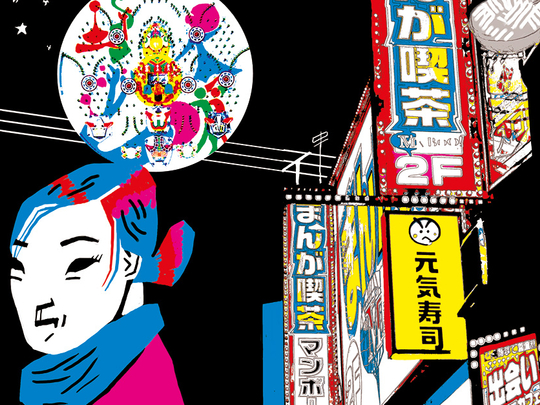
Pachinko
By Min Jin Lee, Head of Zeus, pages 480, $17
In the latter stages of Korean-American author Min Jin Lee’s patient, sprawling story of a Korean family in Japan, Nobuo Ban, one of the novel’s principal characters, allows himself a moment of reflection. He is living a “small, invisible life” in Nagano, Japan, in 1969 – a modest but respectable middle-class existence, with a wife and four children and a job as a manager of a gambling joint where customers play the pachinko machines that lend the novel its title. But Nobuo’s unchanging routine and determinedly detached manner hide a terrible secret that plagues him daily: he is not, in fact, Japanese, but Korean – born Noa Baek, the son of poor immigrants despised by the rest of Japanese society. His failure to commit himself emotionally to his wife is at odds with the totality of his dedication to Japanese language, culture and manners, and betrays not just a deep-seated fear of being unmasked but an acceptance of the impossibility of equality or redemption. “Though he valued his wife and children as a kind of second chance, in no way did he see his current life as a rebirth.”
Noa’s predicament is a terrifying embodiment of the anxieties of Koreans in Japan – he stands to lose his family and job if his true identity is revealed – and indeed of immigrants in general. His desire to assimilate is constantly tempered by the fear of rejection, a tension that works its way into virtually every scene in the novel.
Spanning nearly 100 years and moving from Korea at the start of the 20th century to pre- and postwar Osaka and, finally, Tokyo and Yokohama, the novel reads like a long, intimate hymn to the struggles of people in a foreign land. Min Jin Lee meticulously reconstructs the relatively overlooked history of the large ethnic-Korean community in Japan, referred to as zainichi, whose perpetual status as outsiders obliges them, like Noa’s nephew Solomo in the novel, to renew their alien registration card every three years: a state of administrative limbo that mirrors their divided identities and condemns them to the role of the perpetual outsider.
The novel’s multi-generational narrative allows this rich history to unfold at a pace that is beguilingly peaceful, opening in a deceptively idyllic coastline setting in Korea, shortly after the Japanese annexing of Korea. Hoonie, the cleft-lipped, club-footed son of a fisherman, marries Yangjin, a 15-year-old “as mild and tender as a newborn calf”. Their first three babies die, but the fourth, Sunja, survives, and blossoms in adolescence. She soon falls for a sharp-suited man who wears white shoes and speaks fluent Japanese and Korean: a married yakuza, a polished gangster whose divided loyalties announce the end of Sunja’s innocence and the beginning of a life of hardship. Pregnant with Noa, her only salvation lies in marriage to an understanding pastor who arranges her escape to Japan, where she quickly becomes accustomed to the life of a Korean immigrant.
Shame and guilt underpin many of the finest scenes in the novel, with every character continually forced by their position as second-class citizens to make painful sacrifices, and, consequently, to consider the nature of those sacrifices. Sunja never fully comes to terms with falling pregnant by a married man, nor can she overcome her emotional and material debt to Isak, the man who saves her (his act of sacrifice for her and her family is not enough to provide her with any sense of salvation). Noa sacrifices his Korean identity in order to become Japanese, but fails to reconcile himself with either.
Although Noa and Hansu offer some of the most poignant emotional conflicts in the novel, the story is built upon the resilience of its female characters, who keep their families alive during their most difficult times, working long hours running boarding houses or making and selling kimchi in the most gruelling conditions in order to support the children. Elsewhere, minor characters such as Akiko and Phoebe probe the nuances in cultural difference in a way that Noa, Hansu or even Solomon are not able to.
Much of the novel’s authority is derived from its weight of research, which brings to life everything from the fishing village on the coast of the East Sea in early 20th-century Korea to the sights and smells of the shabby Korean township of Ikaino in Osaka – the intimate, humanising details of a people striving to carve out a place for themselves in the world. Vivid and immersive, Pachinko is a rich tribute to a people that history seems intent on erasing.
–Guardian News & Media Ltd
Tash Aw’s Five Star Billionaire is published by 4th Estate.









